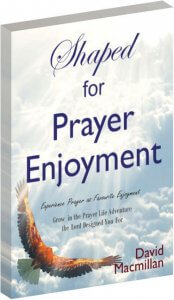It’s called by various names, has many forms and is known worldwide. It doesn’t skip a generation or select only some individuals. Trouble is a reality of life. So is God’s promise of help. However, when help is promised but the trouble continues, that’s a trust challenge!
Resting in the unrest
Serious, life-threatening trouble. That’s the backdrop to David’s ‘reasons to rest’ song from a desert cave (Psalm 34). Rest didn’t come after trouble moved out. David was learning to rest in the unrest. It meant trusting that, when help is promised but the trouble continues, the Lord has a loving reason for it.
He praises God who saved him out of all his troubles (6). He adds: A righteous man may have many troubles, but the Lord delivers him from them all (17, 19). Really?
True, David had escaped King Achish, but he was still in danger, a wilderness fugitive, unjustly hunted by Saul. Circumstances hadn’t changed much, and yet he celebrates being saved from them all. How could he announce complete deliverance while still in trouble? Probably because he was learning something important, but less obvious, about God, the Helper.
For Glory and for best
God’s help always serves Glory first; he draws attention to himself. And that Glory-first approach has our best written into it. So, while a quick end to our trouble might be the nicest answer to our prayer, it isn’t always the best one. We have a perfect example of this.
Jesus asked to avoid the cup of suffering, and yet he drank it (Mt 26:39). It was dreadful, but it was best. He wasn’t spared the whip, thorns or painful hours on the cross, but the breaking of his legs was excluded. The details of his suffering – the timing and what was or wasn’t permitted – were overseen by the Father. Cancelling the cup would have held back his Glory and our best.
David’s trouble can’t be compared to Christ’s. But in singing of his experience, he prophetically voiced the Father’s loving custody over the Son’s suffering: he protects all his bones, not one of them will be broken (20). David knew his troubles weren’t over, but he grasped this truth: its details and length were under the Lord’s management….. for Glory and for best.
He would probably have liked a nicer journey, but the passage through trouble was shaping him for prophetic fulfillment and for his destiny as king.
Trouble doesn’t have managing rights
When God’s help is promised but the trouble continues, it’s not a lapse in compassion or lack of empathy. He manages our journey for Glory and for best in the wisest, most loving way. And at times that means not immediately erasing the difficulty or cancelling the storm. But the present trouble doesn’t have the final word or the managing rights over our lives. The pain, discomfort or inconvenience is real, but we are raised above its power to overwhelm (2 Cor 4:8-9). So, a sound fills the cave, a song of reasons to rest in the continuing trouble.
Cave encounter
David starts to sing his admiration of the Lord, and of desire to always praise, whatever his circumstances (1-3). And then, he becomes a praise instigator. Imagine the accumulated troubles in his cave community of 400 distressed men. But he calls them to join him worshiping the Helper in the face of continuing trouble: Glorify the Lord with me; let us exalt his name together. It became a cave encounter with the Lord.
Most of us have, or can recall a situation where we hoped God’s help would quickly end the trouble, but it continued (perhaps worsened). It could be time to have a fresh ‘cave encounter’ with him regarding it.
- REFLECT & REST. God manages all things for his Glory and for our best. Ponder the truth, then anchor to Rom 8:28-30 and write fresh prayers of TRUST in the Lord as your loving Helper – trustworthy, even if the trouble continues and the situation is unchanged.
- ADMIRE the Lord. From your place of restful trust, celebrate (express joy over) the Lord’s love that promises help, his power that enables it and his faithfulness that guarantees it. Then, pray thanks, followed by praise, still focused on his love, power and faithfulness.
- INSTIGATE PRAISE. Following David’s example in the cave, plan to invite others – at least one other person that might be experiencing trouble of some kind – to join you (physically or virtually) in a song or prayer time, exalting the Lord.
- Reach FURTHER in prayer. By praying from REST we are best able to pray HOPE. Learning to rest in Christ during our own troubles strengthens our authority to pray for others in trouble. Use the above three steps as a lead-in to praying for the church in a specific community or nation in unrest.
For more on what to do when hemmed in with troubles, see blog post Trouble and what it triggers




